Le Van Duyet's life story is still shrouded in the mist of many folk traditions and subjective opinions of later generations. So how did later generations talk about him, and how did history record it?
According to the official history of the Nguyen Dynasty, the Le Van family originated from Bo De village, Chuong Nghia district (now Quang Ngai province). His father, Le Van Toai, moved to Dinh Tuong province (now Dong Thap province). In 1924, author Cao Hai De compiled the biography of Le Van Duyet , claiming that the person who migrated south was Le Van Hieu - Le Van Duyet's grandfather. Le Van Hieu, a widower, along with his son Le Van Thoai (Toai) and daughter-in-law, settled at Toa Lot (Tra Lot) estuary in Hoa Khanh village (now Dong Thap province).
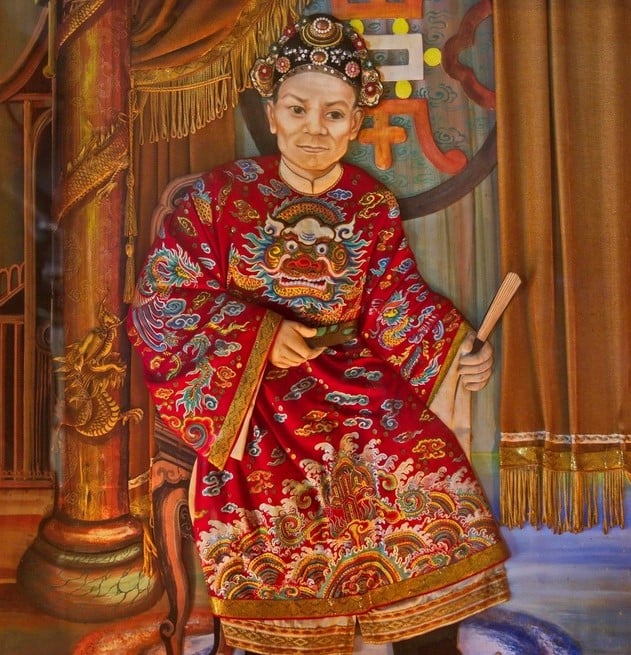
Painting of General Le Van Duyet (1763 - 1832)
PHOTO: ARCHIVE OF NGUYEN QUANG DIEU
According to Cao Hai De, in Hoa Khanh, Le Van Toai had two sons, Le Van Duyet and Le Van Phong. When Le Van Duyet was 9 years old, an epidemic broke out in the area. Le Van Hieu contracted the disease and died. After burying his father, Le Van Toai's family moved to a place near Rach Gam, which later became Long Hung village (now in Dong Thap province).
Today, in Hoa Quy hamlet, Hoa Khanh commune, the tomb of Mr. Le Van Hieu still remains. The tombstone was erected by "the filial son of the Imperial Commissioner, Commander Toai" in the year of Giap Tuat. Based on the year of Mr. Le Van Toai's death, that year was 1814. The tombstone records Mr. Le Van Hieu as "His esteemed father, bestowed with the title of Quang Tien Chieu Nghi General, Commander Le Hau." This is clearly a title posthumously awarded by the Nguyen dynasty to the father of the meritorious official Le Van Duyet.
The tombs of Le Van Duyet's parents are located in Chau Thanh District, former Tien Giang Province (now part of Dong Thap Province), and were erected by General Le Van Duyet himself in the year Tan Ty [1821]. The style of the two tombs is reminiscent of the tomb of King Gia Long in Hue.
Oral traditions and historical records
There are many different oral traditions about the background of Le Van Duyet following Lord Nguyen Anh. Cao Hai De said that when he moved to Long Hung, the Le family's economic situation gradually improved, so Le Van Toai sent his children to school. But Le Van Duyet did not like to study. Because he was born with "hidden palace" - that is, his male genitals were not as complete as normal people, he was often teased by his friends. Instead of studying, he often wandered around, sometimes trapping birds, sometimes catching fish. His favorite hobby was cockfighting.
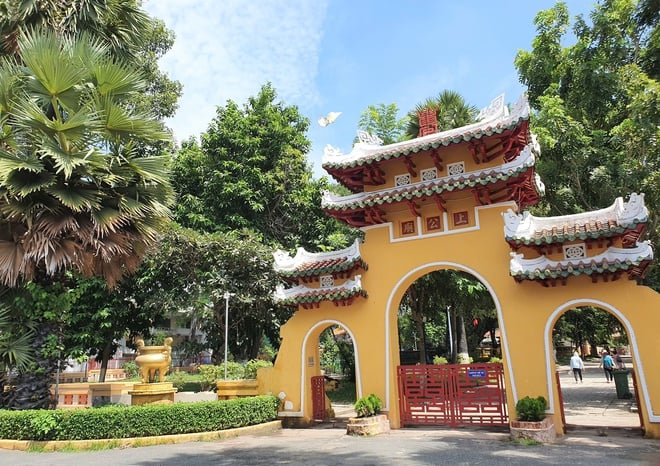
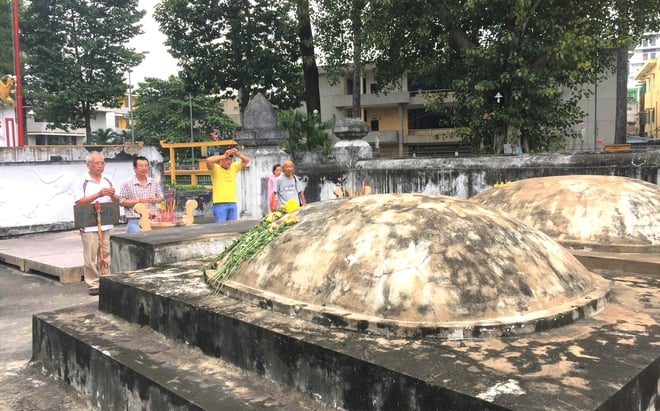
Ong Ba Chieu Mausoleum (Ho Chi Minh City), where the temple and tomb of General Le Van Duyet are located.
PHOTO: QUYNH TRAN
Around 1781 - 1782, Lord Nguyen Anh lost the battle to Tay Son and fled to Long Hung. Lord Nguyen Anh stayed at Mr. Le Van Toai's house and was warmly welcomed. During the conversation, Lord Nguyen Anh asked about Mr. Toai's children. Mr. Toai mentioned his eldest son, Le Van Duyet, and lamented:
"That child is worthless. He doesn't pursue his studies, dislikes farming, and refuses to do anything at all. Even though he's grown older, he's excessively lazy, spending his days and nights following buffaloes in the fields, climbing trees and bushes, his clothes tattered and torn!"
At that time, Le Van Duyet had just returned from a trip. He went out to bathe, change his clothes, and then went out to greet the guests. Lord Nguyen Anh looked at Mr. Duyet's appearance and asked him questions. He knew that he was not an ordinary person, so he asked Mr. Toai to let him follow him.
Another biographer, Nguyen Kim Dinh, in 1926 also published the book Le Ta Quan Biography and Linh Sam . Nguyen Kim Dinh said that Le Van Duyet had a set of horse-drawn boards placed in the middle of the house, with a chair in front, neatly arranged trays and boxes, and a cotton mat and pillows. But he did not let anyone sit on it. Even if the village officials sat on it, he would chase them away and beat them.
When Le Van Duyet was 20 years old, Lord Nguyen Anh came to his house and sat on that plank. The order of Le Van Duyet (namely Mrs. Nguyen Thi Lap) came out to stop him. Lord Nguyen Anh asked why. She clearly explained the reason, but Lord Nguyen Anh still sat there. Strangely, this time Le Van Duyet saw that scene and did not react. He went in to change his clothes and then came out to ask: "Where are you all going in such a large crowd?". Lord Nguyen Anh asked again: "Are you Duyet, the son of this old woman?". Duyet replied: "Yes, sir." Lord Nguyen Anh asked: "Why are you so grown up and not worrying about worldly affairs when you are such a filial sister, instead of wasting your reputation on trees and grass?". Duyet replied: "Sir, there is no one in this land who is worthy enough to worry about important matters with them, so I hummed the mountains and rivers and waited for the right time."
Lord Nguyen Anh asked again: "If so, we are loyal to the country, will you follow me?". Duyet replied: "Yes, I will". He asked again: "Who are you willing to follow?". Le Van Duyet stepped forward, held Lord Nguyen Anh's hand, and said: "I am willing to follow this man". Everyone laughed.
Those oral traditions reflect the popular opinion about Le Van Duyet's political choices. But official history says otherwise. In 1780, Nguyen Anh proclaimed himself king in Saigon. Le Van Duyet "was just 17 years old, recruited as a eunuch". In other words, that was when Nguyen Anh began to build a "court", so he needed servants in the forbidden palace. Le Van Duyet had a habit of hiding in the palace, so he was chosen. From here, Le Van Duyet's unusual path of advancement began. ( continued )
Source: https://thanhnien.vn/ta-quan-le-van-duyet-qua-tu-lieu-lich-su-di-theo-chua-nguyen-anh-185251025201650171.htm


![[Photo] Prime Minister Pham Minh Chinh holds a phone call with the CEO of Russia's Rosatom Corporation.](/_next/image?url=https%3A%2F%2Fvphoto.vietnam.vn%2Fthumb%2F1200x675%2Fvietnam%2Fresource%2FIMAGE%2F2025%2F12%2F11%2F1765464552365_dsc-5295-jpg.webp&w=3840&q=75)
![[Photo] Closing Ceremony of the 10th Session of the 15th National Assembly](/_next/image?url=https%3A%2F%2Fvphoto.vietnam.vn%2Fthumb%2F1200x675%2Fvietnam%2Fresource%2FIMAGE%2F2025%2F12%2F11%2F1765448959967_image-1437-jpg.webp&w=3840&q=75)




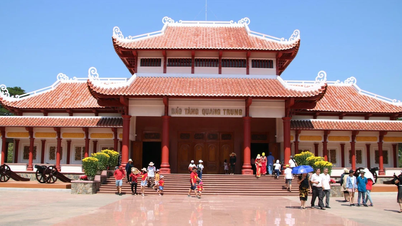

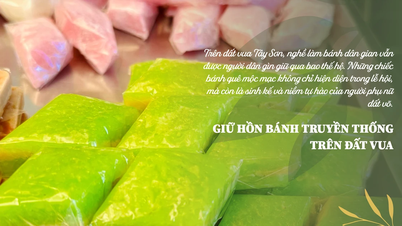

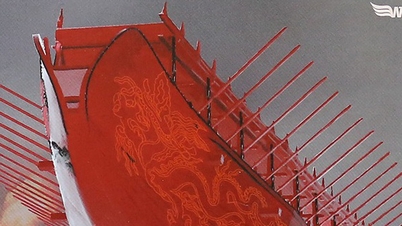


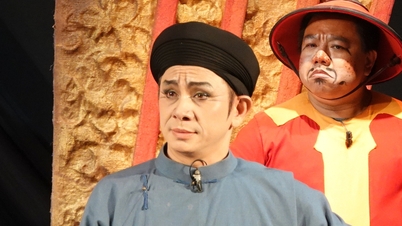







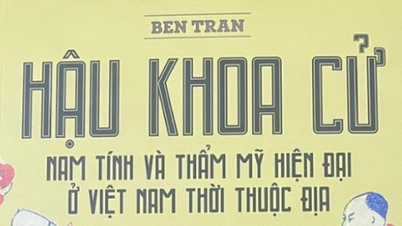


































![[OFFICIAL] MISA GROUP ANNOUNCES ITS PIONEERING BRAND POSITIONING IN BUILDING AGENTIC AI FOR BUSINESSES, HOUSEHOLDS, AND THE GOVERNMENT](https://vphoto.vietnam.vn/thumb/402x226/vietnam/resource/IMAGE/2025/12/11/1765444754256_agentic-ai_postfb-scaled.png)


















































Comment (0)